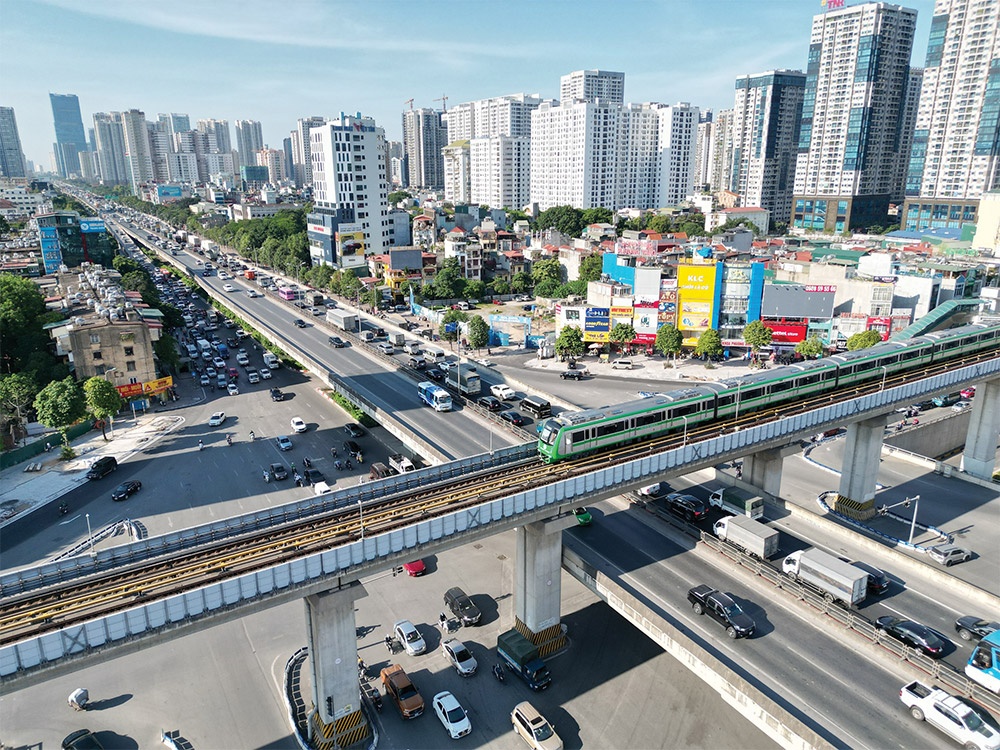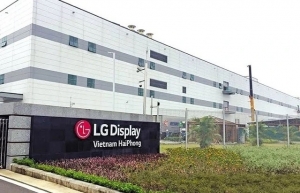Capital creates space for high-tech FDI capital influx
The capital is prioritising administrative reforms to enhance the business climate, investing in highly skilled workers and expanding key infrastructure, especially in industrial zones focused on IT and high-tech industries.
 |
| Capital creates space for high-tech FDI capital influx |
“As part of our strategy, we aim to develop high-tech zones that draw in selective, environmentally friendly investments,” said Nguyen Tran Quang, deputy director of the Hanoi Promotion Agency at a seminar last week.
“Specifically, the Hoa Lac High-tech Park (HHTP) is fully equipped with the necessary infrastructure, functional zones, and skilled workforce to connect researchers, businesses, and educational institutions, making it well-positioned to attract semiconductor development projects,” he said.
Hanoi has been developing the technology hub into a hotspot for overseas funding in new and high-tech industries with great potential. The HHTP has attracted just over 100 projects, including 14 foreign-led ones, with a total registered capital of approximately $4.82 billion.
Semiconductors are the top priority and are receiving development support from the government, and the HHTP expects to attract powerful businesses in the semiconductor and microchip sectors.
Tran Dac Trung, deputy director of the HHTP Management Board, said, “The park has a big advantage because it is now home to schools, research institutes, and high-tech businesses. Preparing the necessary conditions to develop this industry, such as human resource training, is vital. The HHTP is cooperating with institutes and firms to prepare personnel for research activities and to meet the needs of large projects.”
By 2027, the Korea Advanced Institute of Science and Technology will invest in and support Vietnam in establishing a semiconductor research lab located at the park.
Along with that, park leaders are proposing and developing appropriate policies to create the best conditions for investors. Many preferential policies are already in place, particularly for large-scale projects costing over VND4 trillion ($166.7 million), which are now eligible for 30 years of corporate income tax incentives, instead of the previous 15 years.
Hanoi attracted $152 million in foreign direct investment (FDI) in November, bringing the total in the first eleven months of this year to $2.06 billion.
According to the municipal People’s Committee, over $1.14 billion was poured into 253 newly registered projects in the January-November period, while $348.6 million was added to 182 existing projects, and $572.15 million was spent by foreign investors through contributing capital and purchasing shares.
In 2024, Hanoi aims to attract $3.15 billion in FDI overall, with projects involving land usage accounting for over $2.15 billion and trade and service projects covering the rest. For 2025, the city plans to attract about $2.7 billion in FDI. To achieve these targets, Hanoi needs to further enhance its investment attraction efforts, as there are still barriers that cause hesitation among foreign investors.
Recognising that FDI is an important driving force for development, Hanoi has improved the investment environment, creating many new advantages to pull in large corporations. In July, the Capital Law was passed by the 15th National Assembly with many specific mechanisms, opening up more development directions for the city.
Director of the Hanoi Promotion Agency Nguyen Anh Duong said, “The city is committed to providing improvements to draw in funding, especially FDI. In addition to the existing general incentives, the new Capital Law introduces additional preferential mechanisms and attractive policies for investors.”
For example, businesses investing in sectors designated as priority for attracting strategic investors will benefit from a 10-year exemption from land and water surface lease fees, with a 50 per cent reduction on the remaining lease period. Additionally, they will enjoy a 5 per cent corporate income tax rate, with a four-year exemption and a 50 per cent reduction on the remaining tax for the following nine years.
 | Vietnam sees increase in FDI in the first 11 months of 2024 Vietnam reported more than $31 billion in foreign direct investment (FDI) in the first 11 months of the year, an on-year increase of almost 1 per cent, according to data from the Foreign Investment Agency (FIA) under the Ministry of Planning and Investment. |
 | Investors expand in high-tech realm The expansion of foreign manufacturers in Vietnam’s high-tech and electronics sectors, coupled with rising export turnover, underscores the country’s growing profitability and appeal to investors. |
What the stars mean:
★ Poor ★ ★ Promising ★★★ Good ★★★★ Very good ★★★★★ Exceptional
Related Contents
Latest News
More News
- Vietnam, New Zealand seek level-up in ties (February 19, 2026 | 18:06)
- Untapped potential in relations with Indonesia (February 19, 2026 | 17:56)
- German strengths match Vietnamese aspirations (February 19, 2026 | 17:40)
- Kim Long Motor and AOJ Suzhou enter strategic partnership (February 16, 2026 | 13:27)
- Haiphong welcomes long-term Euro investment (February 16, 2026 | 11:31)
- VIFC in Ho Chi Minh City officially launches (February 12, 2026 | 09:00)
- Norfund invests $4 million in Vietnam plastics recycling (February 11, 2026 | 11:51)
- Marico buys 75 per cent of Vietnam skincare startup Skinetiq (February 10, 2026 | 14:44)
- SCIC general director meets with Oman Investment Authority (February 10, 2026 | 14:14)
- G42 and Vietnamese consortium to build national AI infrastructure (February 09, 2026 | 17:32)

 Tag:
Tag:



















 Mobile Version
Mobile Version